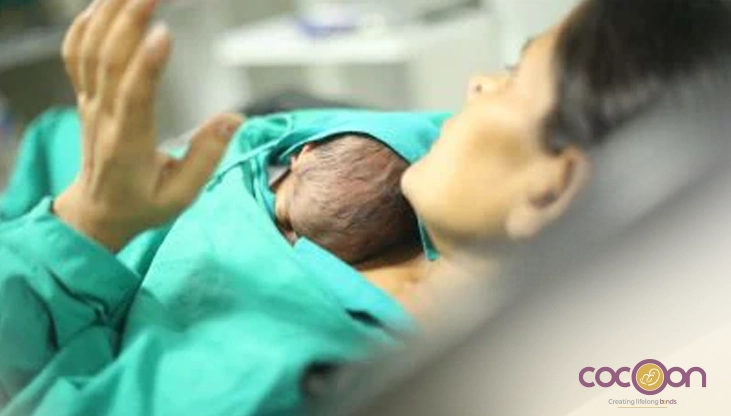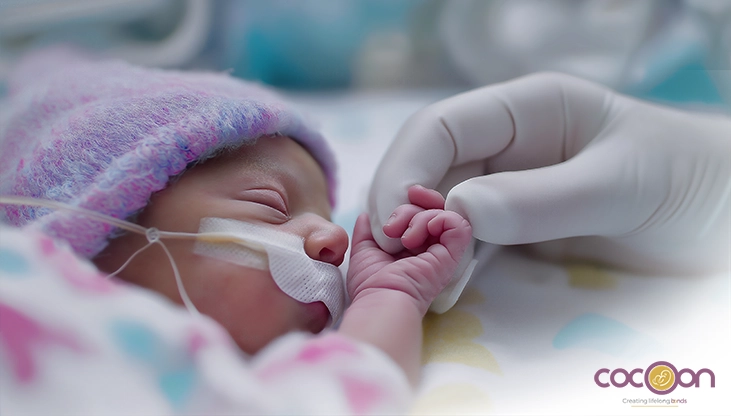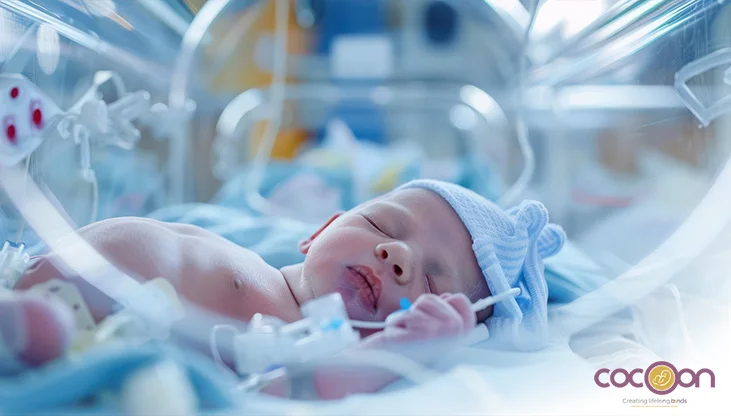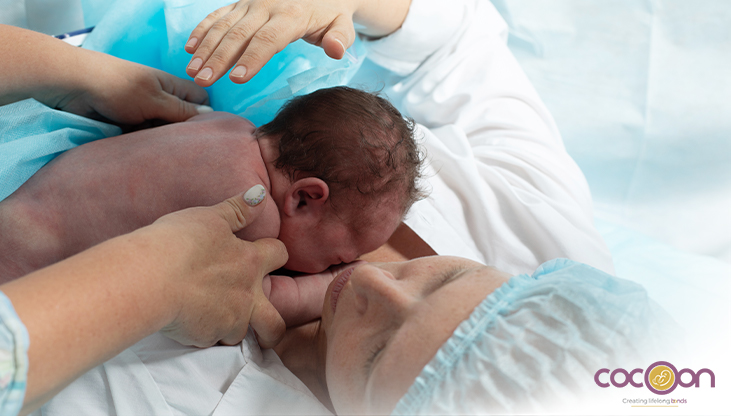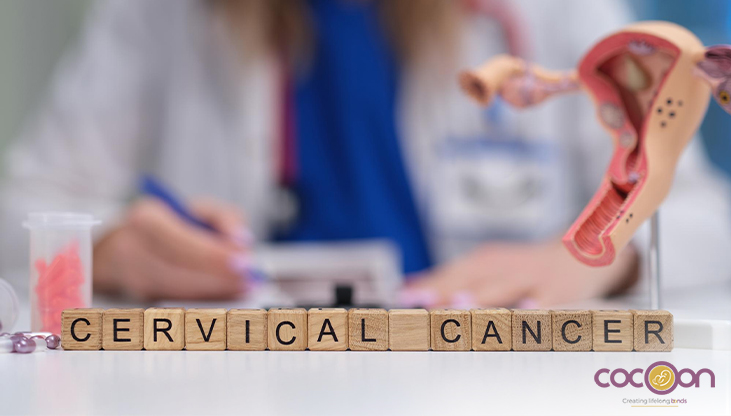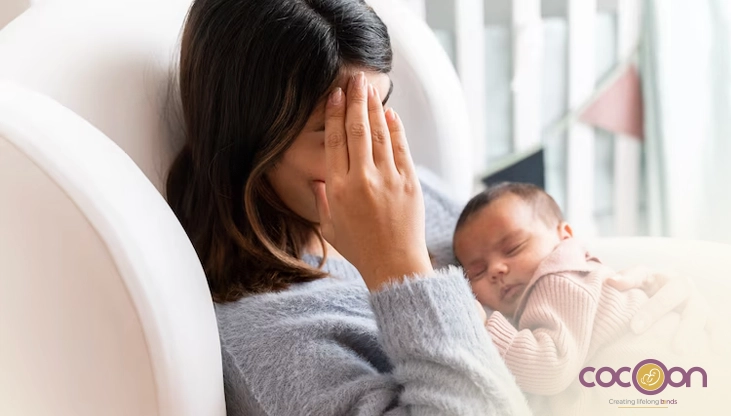The mother’s womb is the best place for a fetus, where most major organs form by the end of the first trimester, around 12 weeks. However, these organs, like the brain and liver, attain their full functioning even after birth. Because of this, babies need special care with feeding, hydration, and nutrition.
One common condition seen in newborns is neonatal jaundice, leading to yellowing of their skin and eyes. It occurs because of a buildup of bilirubin (a substance produced during the breakdown of red blood cells) as the baby’s liver isn’t fully developed to clear it efficiently. It’s usually not serious and goes away within a couple of weeks, but sometimes doctors use phototherapy (light treatment) or ensure proper feeding to help the baby’s body remove excess bilirubin properly.
What is Neonatal Jaundice?
Neonatal jaundice means yellowing of a newborn baby's skin and eyes. This happens because of an accumulation of bilirubin, as babies’ livers are not fully developed to get rid of it.
This condition is also known as
- Neonatal hyperbilirubinemia
- Neonatal icterus
- Newborn jaundice
How Common Is Jaundice in Newborns?
Jaundice is very common in newborns. This affects nearly 60% of full-term babies and up to 80% of premature babies in the first week of life.
How Jaundice Develops in Newborns
Normally, in adults, bilirubin moves in the blood attached to a protein called albumin. Then it reaches the liver; here it gets converted into a form that can dissolve in water. Then, finally, it exits the body through stool.
However, in newborns, this process isn’t fully developed yet. The liver enzymes and their gut bacteria are still growing; therefore, some bilirubin goes back into the blood. This buildup causes the baby’s skin and eyes to look yellow, a condition called jaundice. Thankfully, as the liver matures over the first few weeks, jaundice generally fades on its own.
Is Neonatal Jaundice a Serious Condition?
Neonatal jaundice is generally not serious. It often goes away within a week or two with little or no treatment. However, doctors monitor newborns closely to make sure it doesn’t become severe.
Treatments for Jaundice in Newborns
Doctors may recommend the right treatment if the bilirubin levels in neonates are too high (normally above 12–15 mg/dL for full-term infants) or rising too quickly. Or if jaundice manifests within the first 24 hours after birth.
Here are some treatments:
1. Phototherapy (Light Therapy)
The baby is placed under special blue lights that help convert bilirubin into a form that can be easily eliminated via the baby’s urine and stool. This makes bilirubin levels decrease quickly.
2. Frequent Feeding (at least every 2 to 3 hours)
Feeding frequently when recommended by the doctor with breast milk or formula helps the newborn pass bilirubin out in the urine and stool rapidly. This also keeps them hydrated and supports their liver.
3. Exchange Transfusion
This is recommended in severe cases; some of the baby’s blood is replaced with fresh donor blood to rapidly decrease the dangerous levels of bilirubin.
4. Intravenous Immunoglobulin (IVIG)
It is recommended by the doctor if the jaundice is due to blood type incompatibility. IVIG lowers antibodies that break down red blood cells (RBCs), thus decreasing bilirubin production.
Other Treatments
Pediatricians may recommend the following treatment for the health recovery of the baby from jaundice.
- Filtered Natural Sunlight: In hospitals without equipment, filtered sunlight is used to expose babies safely to blue light wavelengths. This breaks down bilirubin, like phototherapy lamps, decreasing the bilirubin levels naturally.
- Intravenous Fluids: Given by the pediatricians if the baby is dehydrated or feeding poorly. The IV fluids help remove bilirubin by helping the kidneys and liver to perform their function properly.
- Monitoring and Supportive Care: Monitoring includes keeping the baby warm, proper and frequent feeding, and closely watching for liver function changes. These methods make sure the bilirubin level drops safely without worsening.
- Avoid Untested Home Remedies: Some traditional or herbal remedies used by parents lack scientific proof. This may delay proper treatment; hence, avoid them completely unless guided by a doctor.
When should I worry about baby jaundice?
If you observe the following worrying signs in your baby, then these signals need immediate medical attention:
- The yellow color spreads from the face to the chest, arms, legs, palms, or soles.
- The newborn is very sleepy and difficult to wake up
- The baby is unusually fussy.
- They refuse to feed.
- Their urine is very dark, or the stool is pale.
- Jaundice lasts longer than two weeks.
Other symptoms that should make you worry are:
- The baby is having a high-pitched cry
- They make jerky movements
Conclusion
We understand the pregnancy journey is full of challenges, and caring after delivery adds even more demands, from the baby’s sleep to feeding to health. But do not get lost in this chaos, and always carefully notice any unusual changes in your baby’s body. Always consult a doctor immediately if something seems wrong because early attention ensures your baby stays healthy and safe.

